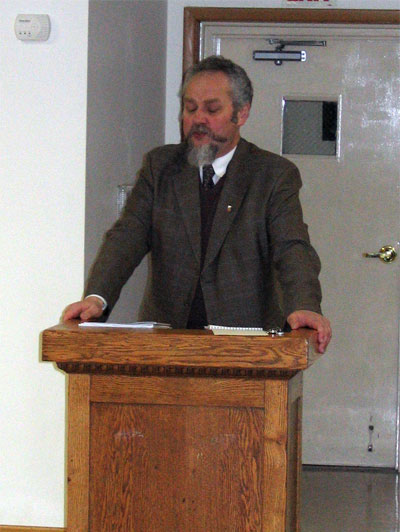Lecture by Professor A. B. Zubov
Holy Trinity Seminary hosted a talk on April 6, 2006, by Professor Andrei Borisovich Zubov of the Moscow State Institute of International Relations on the theme of "Contemporary Church-State Relations in Russia." Professor Zubov spoke vividly of how the events of the Bolshevik Revolution and the subsequent reign of Communism could be seen as a divine punishment for the sins of the Russian people. During the Soviet period, particularly after World War II, Professor Zubov argued, a real Soviet culture became dominant and much of Russia's past was obliterated from public memory. This divine punishment was followed by a miraculous outpouring of God's mercy when, almost against the will of Soviet society, Russia received a divine "rehabilitation" during which the Russian Orthodox Church grew in numbers and influence while the Communist state decayed and fell. Professor Zubov stated that a truly symbiotic relationship existed between the Moscow Patriarchate and the Communist government that in many ways robbed the Church of its internal freedom. In this context, Professor Zubov argued that the Russian emigration, and particularly the Russian Orthodox Church Abroad, has preserved a spiritual health that can help cure the illness within the Moscow Patriarchate caused by Sergianism as well as help the Russian nation as a whole recover from the effects of Soviet ideology. Russia alone cannot recover from its spiritual and social illnesses without the aid of the Russian emigration, Professor Zubov concluded, nor can the Russian emigration alone be the bearer of Russian tradition. Rather, only a union of Churches and peoples can effect a spiritual renaissance in Russia. Following his lecture Professor Zubov fielded questions on points raised in his talk.